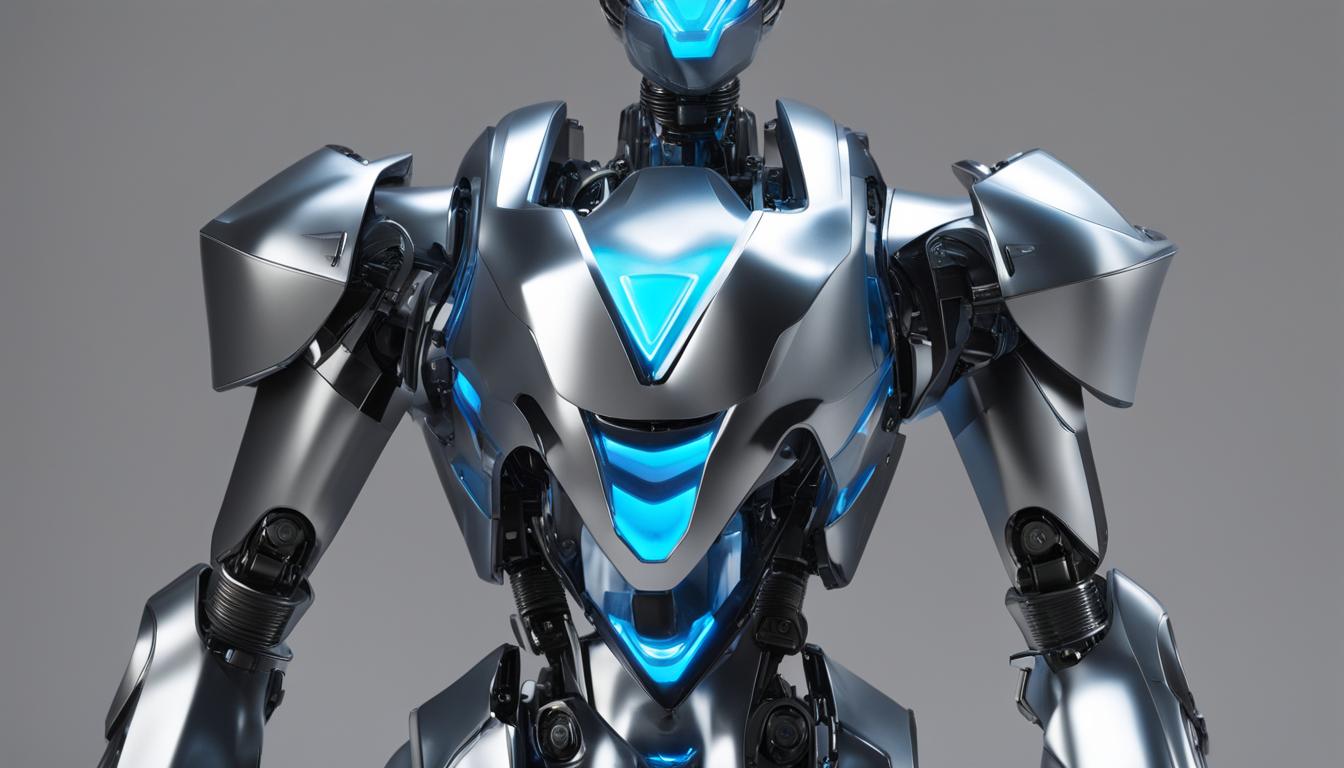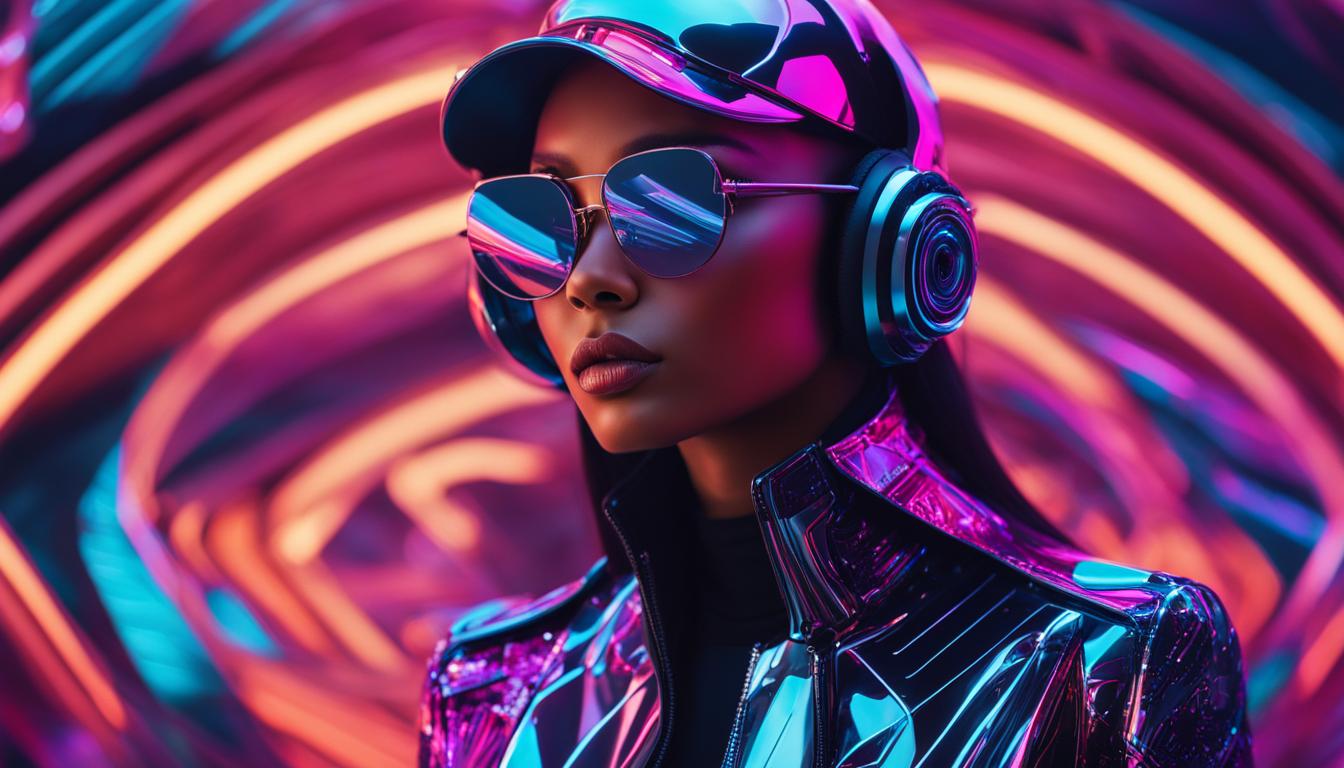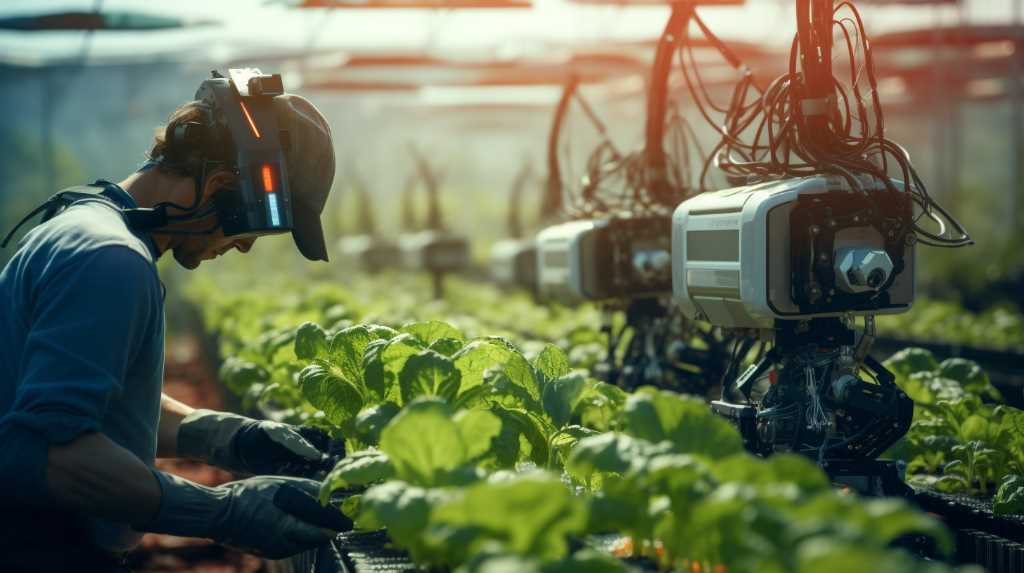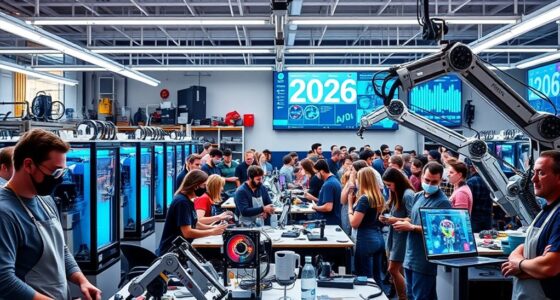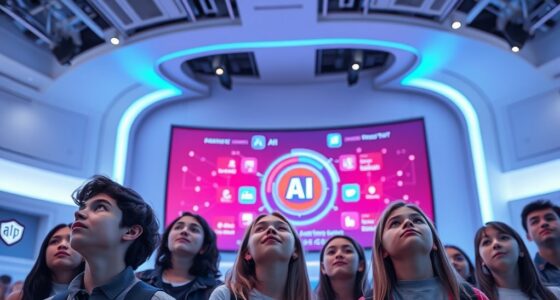We’ve all encountered influencers on social media, but have you ever questioned whether they’re real or simply a creation of artificial intelligence? Meet Lil Miquela, the captivating AI-generated Instagram model who has made a big impact in the digital realm.
Lil Miquela, with her striking appearance and trendy lifestyle, has amassed over one million followers on Instagram. However, what many of her followers may not realize is that she is not a real person but a computer-generated avatar created by the Los Angeles-based startup, Brud.
This revelation has sparked intrigue and debate about the implications of using AI models on social media and the potential impact on the influencer industry. Join us as we delve into the fascinating world of fake AI Instagram models and uncover the truth behind this digital phenomenon.
Key Takeaways:
- AI-generated Instagram models, like Lil Miquela, are not real people but computer-generated avatars.
- The emergence of AI-powered social media influencers raises questions about the authenticity of digital influence.
- The ability of fake AI Instagram models to deceive the audience challenges the line between reality and illusion.
- Despite their artificial nature, AI models on Instagram have a significant impact on their followers and the influencer industry.
- The use of fake AI Instagram models has sparked controversy and ethical concerns in the influencer industry.
The Rise of Artificial Intelligence in Social Media Influencers
The emergence of artificial intelligence (AI) has revolutionized various industries, and the world of social media influencers is no exception. In recent years, AI-generated Instagram models and synthetic influencers have gained significant popularity, blurring the line between reality and virtuality. These computer-generated personalities, such as Lil Miquela, have amassed a large following by posting realistic images of themselves in trendy locations.
Designed to resemble real people, AI models on Instagram have realistic features and wear fashionable clothing, enabling them to connect with audiences on a personal level. Their rise in popularity has even led to collaborations with renowned fashion brands like Prada. This trend has sparked intrigue and debate about the future of authenticity and the role of AI in shaping digital influence.
The Impact of AI Models on Instagram
“AI models on Instagram have not only attracted attention and engagement through their unique persona, but they have also opened up new opportunities for brands to promote their products.”
One of the significant impacts of AI models on Instagram is their ability to attract attention and engagement through their unique persona. Their relatable content and visually appealing posts resonate with followers, leading to increased brand exposure and potential sales. As a result, many brands have recognized the value of partnering with virtual influencers, allowing them to reach new audiences and tap into a market that embraces AI-powered social media personalities.
This shift towards virtual influencers has disrupted the traditional influencer industry, challenging the authenticity and credibility of human influencers. As AI technology continues to advance, these synthetic personalities may reshape the influencer landscape and redefine society’s perception of what it means to be an influencer in the digital age.
| AI Models on Instagram | Advantages | Disadvantages |
|---|---|---|
| Increased brand exposure | Ability to customize and control virtual influencers | Potential for deception and lack of transparency |
| Reach new audiences | Cost-effective alternative for promoting products | Perpetuation of unrealistic beauty standards |
| Potential for collaborations with fashion brands | Ability to showcase unique persona and relatable content | Questioning the authenticity of influencers |
While AI models on Instagram offer unique advantages for brands and marketers, they also raise ethical concerns. The lack of transparency regarding their artificial nature raises questions about the authenticity of their content and the potential for deception. Additionally, some argue that these synthetic personalities perpetuate unrealistic beauty standards and objectify women, further fueling the controversy surrounding their use.
As we navigate a digital landscape where AI-powered social media influencers are becoming increasingly prevalent, it is essential to address these ethical concerns and establish guidelines to ensure transparency and authenticity. The future of AI influencers remains uncertain, but the power of genuine human experiences and connections is likely to continue shaping the influencer industry.
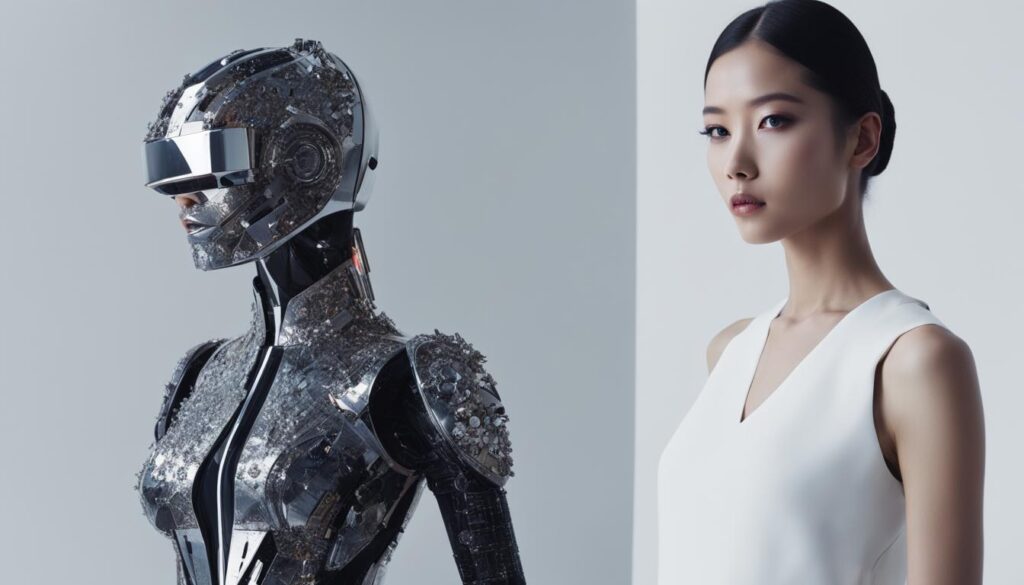
The Illusion of Realism: Deceiving the Audience
One of the challenges of using AI-generated Instagram models is the ability to deceive the audience. These synthetic personalities appear lifelike and interact with real-life people and events. They wear real clothes, eat in restaurants, and even complain about allergies. However, upon closer inspection, slight imperfections in their appearance, such as airbrushed hair and smooth skin, reveal their artificial nature. This juxtaposition raises questions about the line between reality and illusion in the digital world.
Unveiling the Illusion
The rise of computer-generated Instagram models has created a visual spectacle on social media platforms. These virtual influencers, like Lil Miquela, are designed to replicate real people, making it increasingly difficult to distinguish between what is real and what is artificial. Their carefully crafted posts and interactions give the illusion of authenticity, enticing followers to engage with their content.
However, keen-eyed observers can often spot the telltale signs that these personalities are not human. Airbrushed perfection, flawlessly symmetrical features, and an uncanny valley effect are all indicators of their artificial nature. While they may appear realistic at first glance, it is crucial to recognize that they are meticulously created by AI algorithms, designed to emulate human behavior and appearance.
“It’s fascinating to see how far AI has come in replicating human-like appearances and behaviors. However, we must remember that these models are synthetic creations, and their influence should be examined critically,” says AI expert Dr. Amanda Richardson.
The rise of synthetic personalities on platforms like Instagram raises important questions about the impact of digital illusions on society. As we become increasingly immersed in the virtual world, it is crucial to maintain a critical eye and not be swayed solely by the allure of these artificially generated influencers. By understanding the distinction between reality and the illusion created by AI models, we can navigate the digital landscape with greater discernment and make informed decisions about the content we consume.
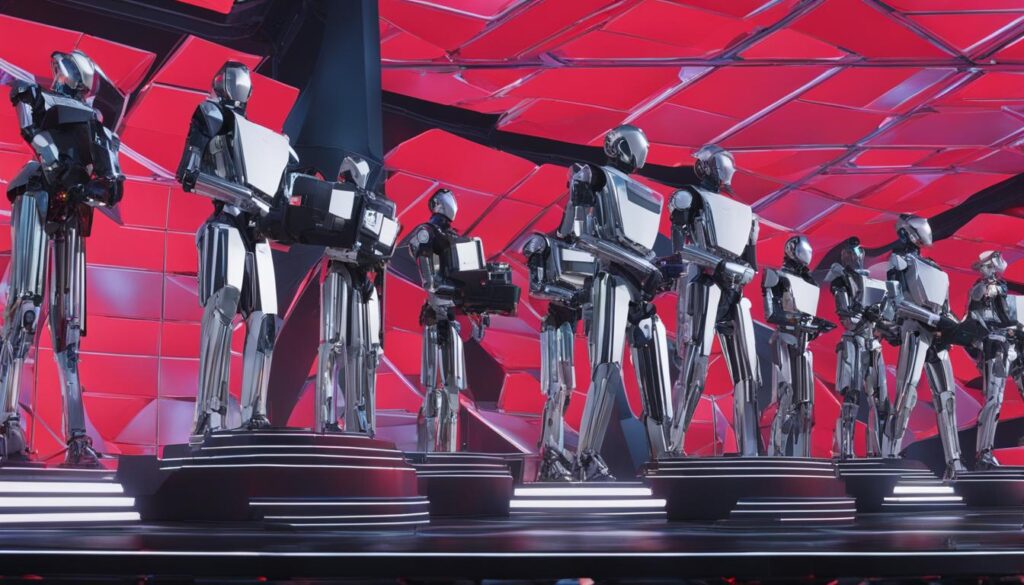
Table: The Illusion of Realism in AI-Generated Instagram Models
| Indicators of Artificial Nature | Examples |
|---|---|
| Airbrushed perfection | Flawless skin, hair, and features |
| Uncanny valley effect | Slight eeriness in appearance and behavior |
| Consistent flawlessness | No natural variations or imperfections |
| Perpetual youth | No signs of aging or physical changes over time |
The Influence of Fake AI Instagram Models
AI-powered social media personalities, also known as virtual influencers, have garnered significant attention and influence in the digital realm. These computer-generated Instagram models, such as Lil Miquela, have captivated audiences with their unique personas and relatable content. Despite their artificial nature, these AI models on Instagram have a profound impact on their followers and the influencer industry as a whole.
Virtual influencer technology has allowed brands to collaborate with synthetic personalities like Lil Miquela to promote their products and reach new audiences. The authenticity and relatability of these virtual influencers create a connection with their followers, leading to increased attention and engagement. As AI technology continues to advance, we can expect to see more brands leveraging the power of these AI-powered social media personalities as a strategic marketing tool.
The rise of computer-generated Instagram models brings into question the traditional notion of authenticity in the influencer industry. While genuine human influencers provide a personalized and relatable experience, virtual influencers offer a new and intriguing form of digital influence. The ability to customize and control the behavior of AI models on Instagram may appeal to brands seeking to maintain certain brand images and aesthetics.
As we navigate the intersection of artificial intelligence and the influencer industry, it is crucial to weigh the potential implications and ethical concerns associated with the use of fake AI Instagram models. The rise of synthetic personalities raises questions about the perpetuation of unrealistic beauty standards and the potential for deception. It is essential to establish guidelines and transparency to ensure a responsible and authentic digital landscape.
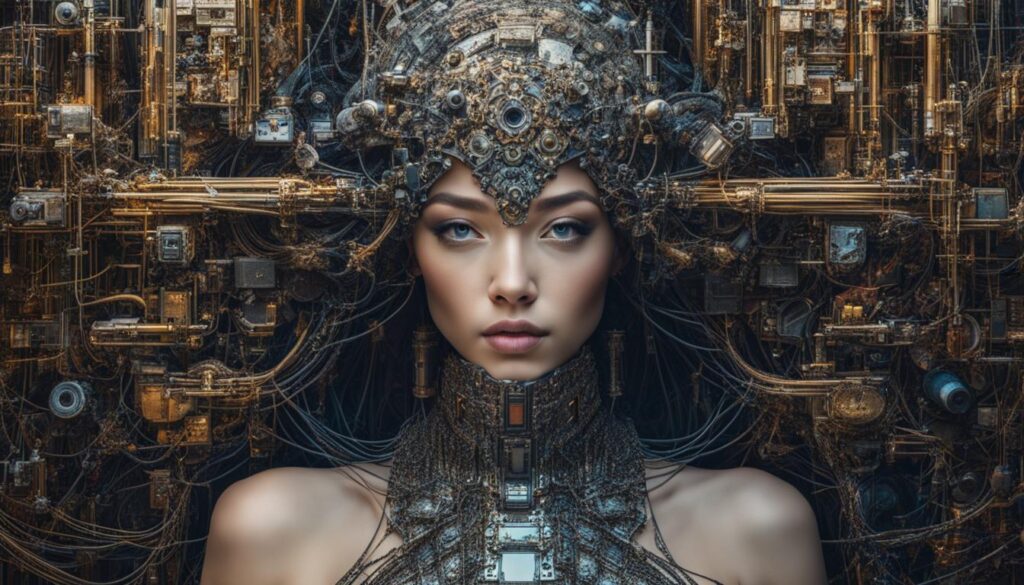
The Influence of AI-powered Social Media Personalities
| Advantages | Disadvantages |
|---|---|
|
|
Controversy and Ethical Concerns
The use of fake AI Instagram models has ignited a wave of controversy and ethical concerns within the influencer industry. Critics argue that these synthetic personalities perpetuate unrealistic beauty standards and objectify women, raising questions about the negative impact on society. The lack of transparency regarding the artificial nature of these models further adds to the ethical dilemma, as it raises questions about the authenticity of their content and the potential for deception.
One of the key concerns is the potential harm caused by unrealistic beauty standards. These AI models often present flawless appearances that are unattainable for the average person, creating a distorted perception of beauty that can affect the self-esteem and mental well-being of users. Moreover, the use of AI models in influencer marketing raises questions about the authenticity of the products they promote. Are these endorsements genuine or simply a result of programming and algorithms?
As we navigate the world of AI influencers, it becomes crucial to address these ethical concerns and establish guidelines for their use. Transparency should be a priority, ensuring that users are aware of the synthetic nature of these models. Additionally, the industry should actively promote body positivity and diversity, embracing influencers of all shapes, sizes, and backgrounds. It is essential to strike a balance between technological innovation and ethical responsibility.
<!–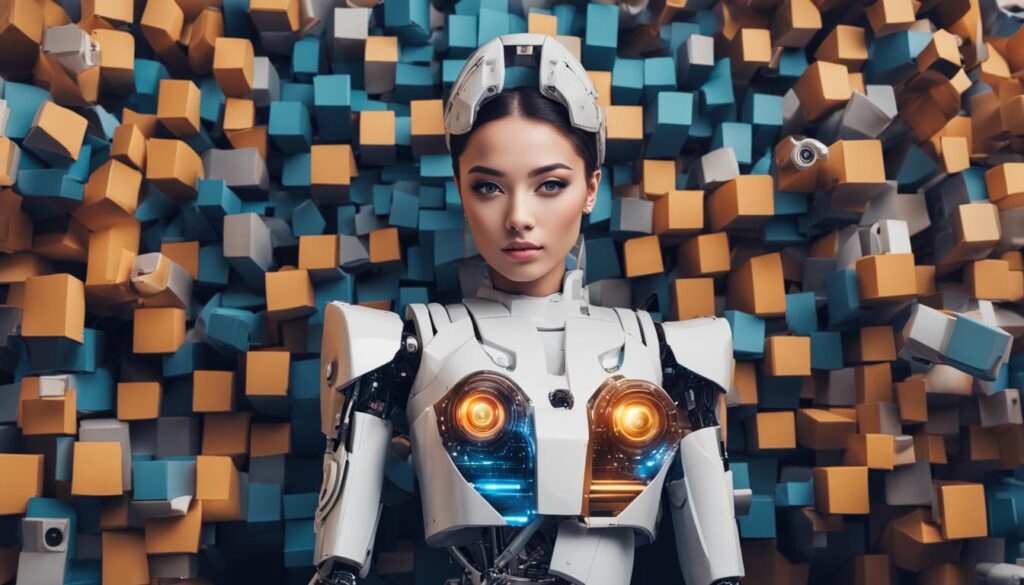 –>
–>
The Need for Transparency
Transparency is crucial in maintaining the trust of the audience. Users deserve to know whether they are engaging with a real person or an AI-generated model. Therefore, it is essential for brands and influencers to clearly disclose the artificial nature of these models, ensuring that users can make informed decisions about the content they consume and the products they choose to support.
Ethics in Influencer Marketing
The rise of AI influencers has also raised important ethical questions about the influencer marketing industry as a whole. As brands increasingly collaborate with AI models, it is crucial to ensure that these partnerships align with ethical standards. Brands should carefully consider the impact of their collaborations, promoting responsible and authentic marketing practices that prioritize transparency, inclusivity, and the well-being of their audience.
In Closing
The controversy surrounding fake AI Instagram models highlights the need for ongoing dialogue and ethical considerations in the influencer industry. While AI models may continue to gain prominence, it is crucial to strike a balance between technological innovation and responsible marketing practices. By prioritizing transparency, diversity, and authenticity, we can navigate the evolving landscape of digital influence in a way that benefits both brands and consumers.
The Future of AI Influencers
The rise of virtual influencers in the social media industry has sparked speculation about the future of AI-powered social media personalities. With AI models on Instagram, such as Lil Miquela, gaining popularity and collaborations with major brands, the influence of synthetic personalities is becoming more pronounced. Tech experts predict that we may see the emergence of AI-powered social network platforms, allowing anyone to create and promote their own personal CGI model. This could potentially revolutionize the influencer industry and blur the lines between real-life and virtual influencers.
However, while the concept of AI influencers may be intriguing, it is important to recognize the enduring value of authentic human influencers. Genuine human experiences and connections continue to hold significance in the digital age. Despite the advancements in AI technology, the desire for relatability, personal connections, and genuine human interactions persists. This suggests that while AI models on Instagram may gain prominence, they are unlikely to completely replace real-life celebrities and influencers.
“The future of AI influencers remains uncertain, as there are pros and cons to consider. While AI models offer a new and novel form of digital influence, the power of authenticity and genuine human experiences cannot be underestimated.”
“It is undeniable that AI-powered social media personalities have made a significant impact on the influencer industry. However, the true power of influencers lies in their ability to establish genuine connections, inspire trust, and create authentic experiences.”
The Future of AI Influencers
In contemplating the future of AI influencers, it is crucial to navigate the ethical concerns that arise in their wake. The use of synthetic Instagram influencers has already sparked controversy regarding unrealistic beauty standards and questions about transparency. As virtual influencers gain more prominence, it becomes imperative to establish guidelines and ethical standards to ensure responsible use of AI models on Instagram.
| AI Influencers | Human Influencers | |
|---|---|---|
| Authenticity | May lack authenticity despite attempts to mimic human behavior. | Offer genuine, relatable experiences and connections. |
| Transparency | May raise concerns regarding the disclosure of their artificial nature. | Provide transparency and establish trust with their audience. |
| Emotional connection | May struggle to establish deep emotional connections with their audience. | Can foster meaningful emotional connections and inspire loyalty. |
The Potential Implications for the Influencer Industry
In the ever-evolving landscape of social media, the rise of synthetic Instagram influencers has the potential to reshape the influencer industry as we know it. These virtual influencers, created using artificial intelligence technology, offer brands a cost-effective alternative for promoting their products without the need for real-life influencers. By partnering with AI-generated models, brands can maintain control over their brand image and aesthetic, ensuring consistency and alignment with their target audience.
One of the key advantages of synthetic influencers is their ability to be customized and controlled. Unlike human influencers, virtual influencers can adhere to strict schedules and guidelines, avoiding potential controversies or scandals. Additionally, their digital nature allows for easy scalability, making it possible to promote multiple brands simultaneously or cater to different niche markets.
However, despite their potential benefits, the continued reliance on genuine human influencers cannot be ignored. Authenticity remains a significant factor in influencer marketing, with audiences gravitating towards relatable experiences and personal connections. Genuine human influencers have the ability to share personal stories, provide unique insights, and build trust with their followers, which can be challenging for synthetic influencers to replicate.
The Value of Authentic Connections
While virtual influencers may attract attention and engagement due to their novelty, the desire for authentic connections and experiences in the digital age remains paramount. As consumers become more discerning, they seek influencers who can provide genuine recommendations, demonstrate real-life usage of products, and engage in meaningful conversations. These factors contribute to building trust and fostering long-term relationships between influencers, brands, and their followers.
Ultimately, the potential implications for the influencer industry are vast. The emergence of synthetic Instagram influencers may provide new opportunities for brands to reach wider audiences and increase their online presence. However, the value of authenticity and genuine human connections should not be underestimated. Finding the right balance between utilizing AI-generated models and embracing real-life influencers will be crucial in navigating the ever-changing landscape of digital influence.
| Synthetic Instagram Influencers | Real-Life Influencers | |
|---|---|---|
| Authenticity | May struggle to establish genuine connections and relatability | Capable of building trust and fostering personal connections |
| Control | Brands have complete control over the virtual influencer’s image and actions | Influencers have the freedom to act authentically and express their own opinions |
| Scalability | Can promote multiple brands simultaneously and cater to various niche markets | May be limited in their capacity to handle multiple brand partnerships effectively |
| Novelty | Attract attention and engagement due to their unique and futuristic nature | May have a more established following and deeper connections with their audience |
The Power of Authenticity in the Digital Age
In the era of artificial intelligence (AI) social media influencers, the concept of authenticity holds a unique power. While AI-generated Instagram models and computer-generated personalities may captivate audiences with their lifelike appearances, the genuine human experience remains unparalleled. As we navigate the digital age, the desire for authentic connections and relatable content continues to shape the influencer industry.
Unlike their synthetic counterparts, human influencers offer a level of relatability and personal connection that AI models struggle to replicate. Authenticity breeds trust and fosters genuine engagement. When an influencer shares their personal experiences, struggles, and triumphs, their audience can relate on a deeper level. This connection is a pivotal factor in establishing loyalty and fostering genuine brand relationships.
“Authenticity is the foundation of trust in the digital realm. While AI-generated models may offer novelty, the power of genuine human influencers cannot be underestimated.”
Furthermore, authenticity plays a crucial role in combatting the detrimental effects of unrealistic beauty standards perpetuated by AI-generated influencers. By embracing natural beauty and showcasing diversity, human influencers can empower their followers and promote a more inclusive society. Through their genuine experiences, they can inspire others to embrace their individuality and foster self-love.
As AI technology continues to advance, the influencer landscape may become increasingly saturated with computer-generated Instagram models. However, the power of authenticity remains a formidable force. In a world where synthetic personalities can be customized and controlled, it is the genuine human experiences and connections that continue to resonate with audiences. Authenticity will always be the cornerstone of digital influence.
Table: Authenticity vs. AI-generated Influencers
| Authenticity | AI-generated Influencers |
|---|---|
| Relatable and personal connections | Lifelike appearances, but lack relatability |
| Establishes trust and fosters genuine engagement | May captivate with novelty, but trust may be a challenge |
| Promotes diversity and inclusivity | May perpetuate unrealistic beauty standards |
| Embraces natural beauty and individuality | Limited by the boundaries of computer-generated perfection |
As the world navigates the influence of AI-generated Instagram models and computer-generated personalities, the importance of authenticity in the digital age remains unwavering. Genuine human influencers offer relatability, trust, and the power to inspire positive change. While AI models may captivate with their lifelike appearances, the true power lies in the authenticity of the human experience.
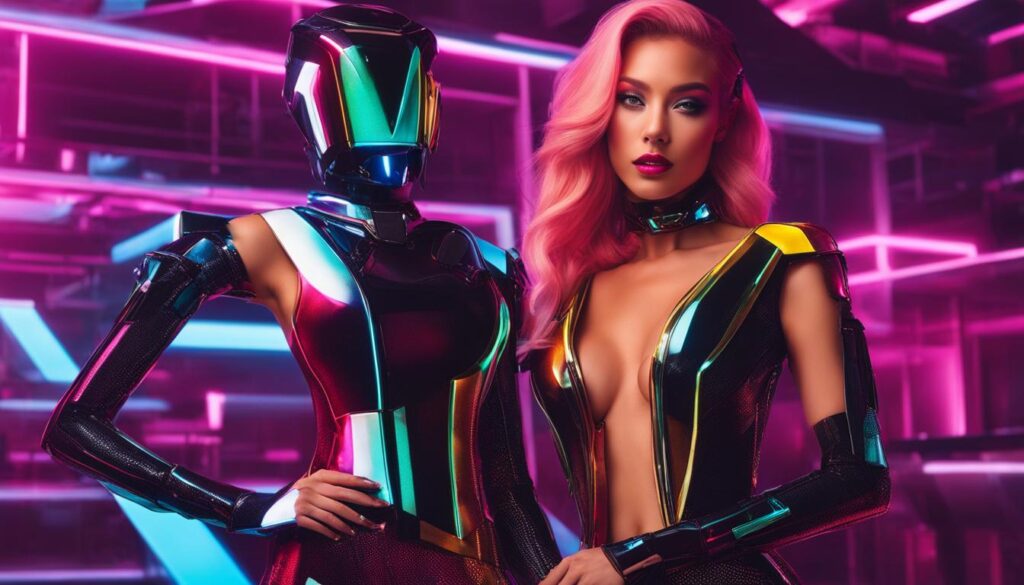
Conclusion
In conclusion, the rise of fake AI Instagram models, such as Lil Miquela, has brought attention to the intersection of artificial intelligence and digital influence. These virtual influencers challenge the notion of authenticity and raise ethical concerns about deception and unrealistic beauty standards. While AI models on Instagram may gain prominence, the power of genuine human influencers and the desire for authentic connections in the digital age will continue to shape the influencer industry.
As we navigate the evolving landscape of virtual influencers and synthetic personalities on Instagram, it becomes crucial to strike a balance between technological advancements and maintaining the value of authenticity. While AI-generated models offer a new and intriguing form of digital influence, the power of genuine human experiences, relatability, and personal connections remains paramount in the digital age.
Though AI models may attract attention and engagement, the desire for genuine interactions and connections with real-life influencers is unlikely to fade. Technology will continue to advance, but the value of authenticity will always hold significance in a world saturated with synthetic personalities. We must remember that true influence goes beyond algorithms and computer-generated avatars, as it stems from the ability to forge genuine connections with audiences.
Therefore, while AI-powered virtual influencers may continue to reshape the influencer industry, the authenticity and relatability of human influencers will always stand the test of time. As we navigate this digital landscape, let us not lose sight of the genuine human experiences that have made the influencer industry what it is today.
FAQ
What is a fake AI Instagram model?
A fake AI Instagram model is a computer-generated avatar designed to resemble a real person on social media. These models, such as Lil Miquela, post realistic images of themselves and interact with real-life people and events.
Who created the fake AI Instagram model, Lil Miquela?
Lil Miquela was created by a Los Angeles-based startup called Brud.
How many followers does Lil Miquela have on Instagram?
Lil Miquela has gained over one million followers on Instagram.
Are AI models on Instagram authentic?
AI models on Instagram are not authentic as they are computer-generated avatars. While they may appear lifelike, closer inspection reveals slight imperfections that indicate their artificial nature.
How do AI models on Instagram impact the influencer industry?
AI models on Instagram attract attention and engagement through their unique persona and relatable content. They have even partnered with brands to promote products, potentially reshaping the influencer landscape.
What are the ethical concerns surrounding fake AI Instagram models?
Some ethical concerns include the perpetuation of unrealistic beauty standards and the potential for deception due to the lack of transparency about their artificial nature.
What is the future of AI influencers on social media?
Experts predict that AI-powered social network platforms may emerge, allowing anyone to create and promote their own personal CGI model, potentially revolutionizing the influencer industry.
How do fake AI Instagram models impact the influencer industry?
Brands may turn to AI-generated models as a cost-effective alternative for promoting their products. The ability to customize and control virtual influencers may appeal to companies seeking to uphold certain brand images and aesthetics.
Is authenticity still important in the digital age?
Yes, authenticity remains important in the digital age as genuine human influencers provide genuine experiences, relatability, and personal connections that synthetic personalities cannot replicate.

